EU Social Partners keep up momentum on safety and labour conditions in fishing
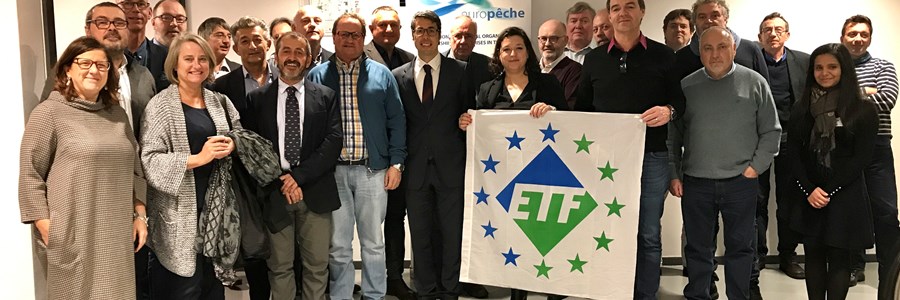
On 9th November 2017, during their annual plenary meeting, the EU Social Partners in the fisheries sector (Europêche1 and ETF2) met with the specialised agencies of the United Nations which play a vital role in fishers’ safety at sea and working conditions. Representatives from the Food and Agriculture Organisation (FAO), the International Maritime Organisation (IMO), and the International Labour Organisation (ILO) together with the European Commission (EC) and Social Partners laid the foundations for a comprehensive action plan to raise awareness and jointly promote worldwide all relevant international instruments on fisheries to ultimately improve safety and labour conditions.
During the meeting, high-level representatives discussed possible ways to implement at EU and international level key International Conventions so far poorly ratified or not yet in force. For the sector, the most pressing legislation to be widely ratified and implemented at international level are the IMO Cape Town Agreement, the FAO’s Agreement on Port State Measures to Prevent, Deter and Eliminate Illegal, Unreported and Unregulated Fishing (PSMA) and the ILO Work in Fishing Convention C188. The implementation and enforcement of those tools would not only help protect fishers but also contribute to the fight against illegal, unreported and unregulated (IUU) fishing.
In Europe, thanks to a pivotal agreement reached by the Social Partners, the ILO Work in Fishing Convention C188 has been transposed into EU legislation through a Directive. The Cape Town Agreement has not come into force to date, despite the amendments made to it in 1993 and 2012. It is implemented in the EU acquis through Directive 97/70/EC.
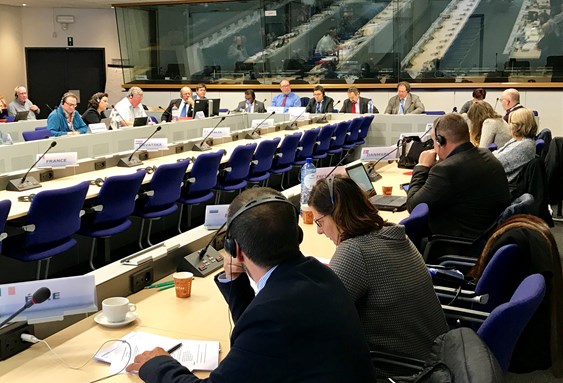
The sector urges now the EC to apply the same approach to the IMO International Convention on Standards of Training, Certification and Watchkeeping for Fishing Vessel Personnel (STCW-F) and transpose it through a Directive. This would bridge the legal gaps at EU level on harmonised vocational training, recognition of certificates, free movement of workers, maritime safety and pollution.
The Committee also referred to the good progress made at the ‘Tripartite Meeting on Issues Relating to Migrant Fishers’ organised by the ILO in Geneva last September. As a follow-up of the conclusions and of the resolution adopted in Geneva, the EU Social Partners requested the EC to adopt enforcement provisions relating to the ILO C188 and to provide assistance to the UN agencies to produce guidelines on how to correctly recruit migrant fishers, on medical examination of fishers and for the implementing the occupational safety and health and accident prevention provisions set in the ILO C188.
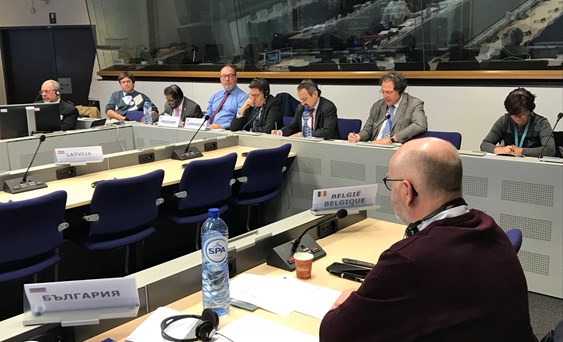
Mr Ment van der Zwan, employers’ group spokesperson, welcomed the constructive nature of the meeting: “I am very pleased to see key international and European decision-makers actively engaging with the fishing industry to make fishing a safer and more sustainable industry. However, we cannot afford to lose momentum: it is time to go from words to action. Globally, out of 25 people employed in a maritime profession, 24 are fishers. Yet, there is a huge difference in the number of ratifications of Conventions for the fishing industry compared to the shipping industry (as is further illustrated in the annex). This needs to change and a comprehensive action plan involving the commitment of all relevant parties can make a difference.”
Mr Flemming Smidt, workers’ group spokesperson, concluded: “The ratification and implementation of many international conventions on safety and social protection for fishers is long overdue. Fishery is by definition an international sector. Only through the adoption of a fully-fledged legal framework at supranational level we can offer our fishers decent working and living conditions and efficiently tackle labour abuses. In this respect, social and safety aspects must be at the core of fisheries policies and therefore, the cooperation and coordination of all institutions and stakeholders is essential.”
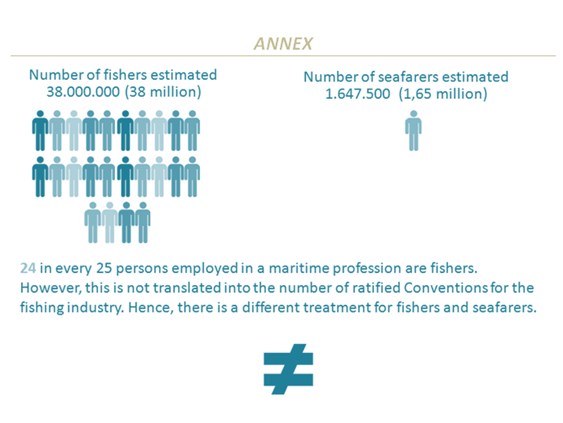
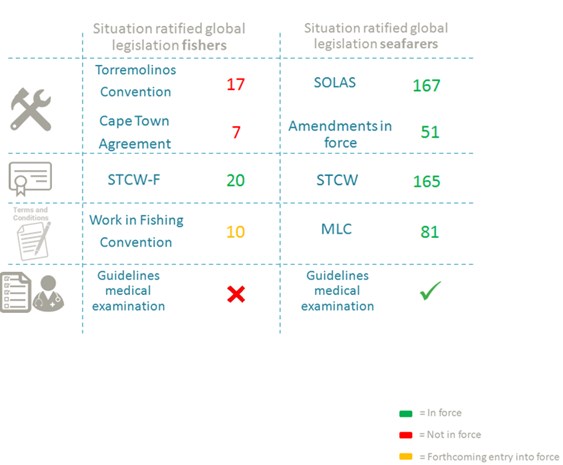
ENDS
For further information, please contact:
Daniel VOCES, Europêche Acting Managing Director (+32.2.230.48.48 or daniel.voces@europeche.org)
Livia SPERA, ETF Political Secretary (+32.470.93.05.89 or l.spera@etf-europe.org)
[1] Europêche represents the catching sector in Europe. In the context of the Social Dialogue, the Association comprises 15 national organisations of fishing enterprises from Iceland and the following 10 EU Member States: DE, DK, ES, FR, IT, MT, NL, LV, PL and UK.
2 The European Transport Workers’ Federation (ETF) represents more than 3.5 million transport workers from more than 230 transport unions and 41 European countries, in the following sectors: railways, road transport and logistics, maritime transport, inland waterways, civil aviation, ports & docks, tourism and fisheries.
Sources: Europeche
Attachments:
Tags: ETF. Europeche, social partners, fao, IMO, ILO, C188, STCW-F, PSMA